MLA Annotated Bibliography
In academic writing, proper citation and referencing are crucial for supporting research and acknowledging the contributions of others. One widely used citation style is the MLA (Modern Language Association) format, which provides guidelines for creating an annotated bibliography. An annotated bibliography goes beyond the traditional bibliographical list by including a concise annotation for each source. This article will explore the definition of an MLA annotated bibliography, provide a step-by-step guide for writing one, address common FAQs, and offer 24+ examples of MLA annotated bibliographies in PDF format.
1. MLA Annotated Bibliography Example

write.siu.edu
2. MLA Annotated Bibliography
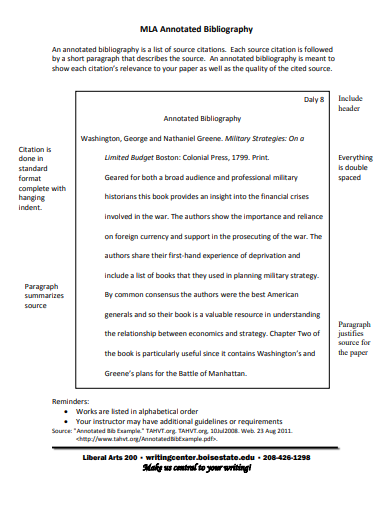
core-docs.s3.amazonaws.com
3. MLA Annotated Bibliography Template
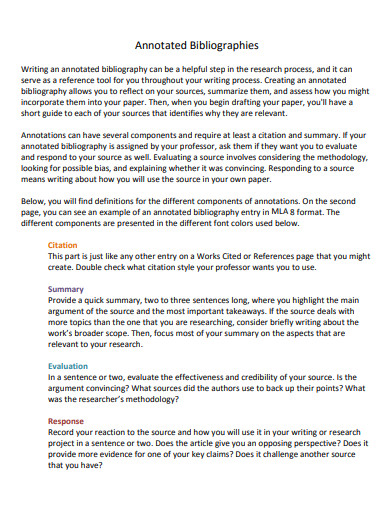
xavier.edu
4. Writing MLA Annotated Bibliography
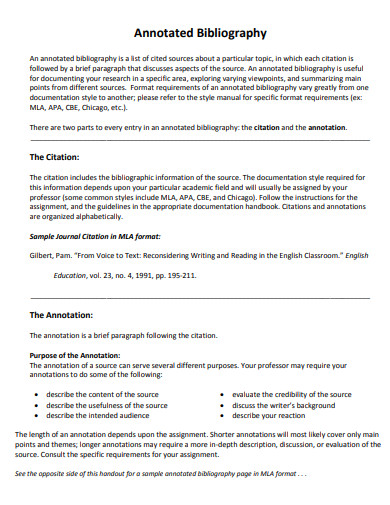
uwc.cah.ucf.edu
5. MLA 9TH Edition Annotated Bibliography
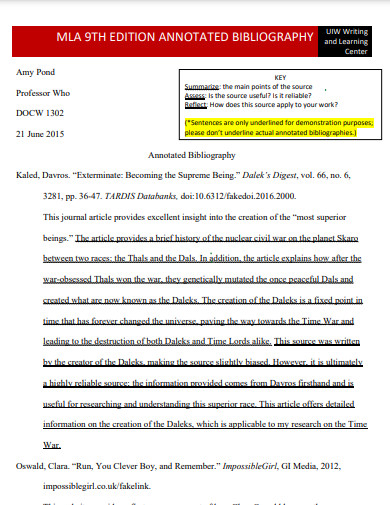
my.uiw.edu
6. High School MLA Annotated Bibliography
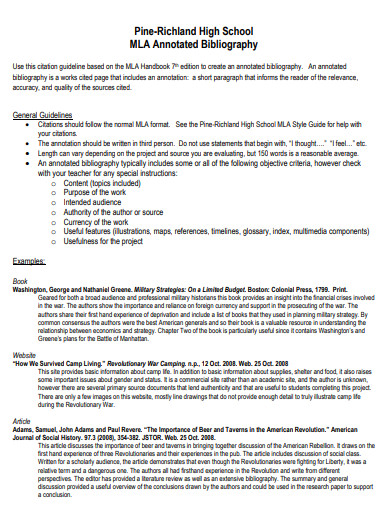
pinerichland.org
7. MLA Annotated Bibliography Format
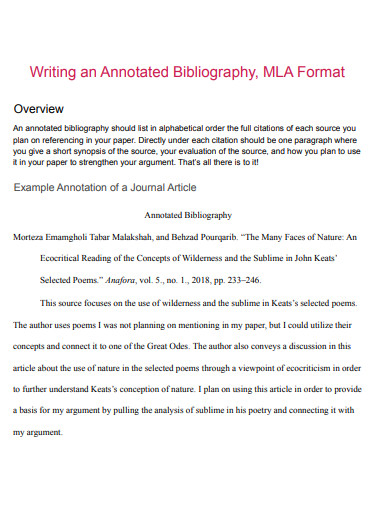
twu.edu
8. Sample MLA Annotated Bibliography
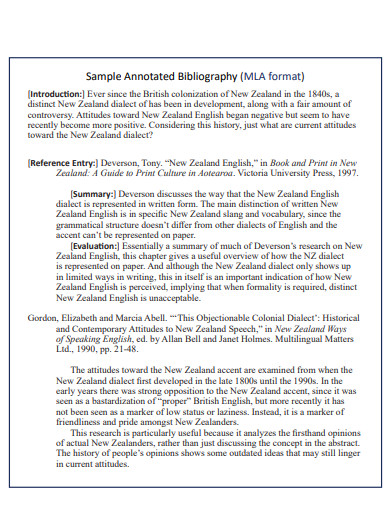
utsa.edu
9. Student MLA Annotated Bibliography
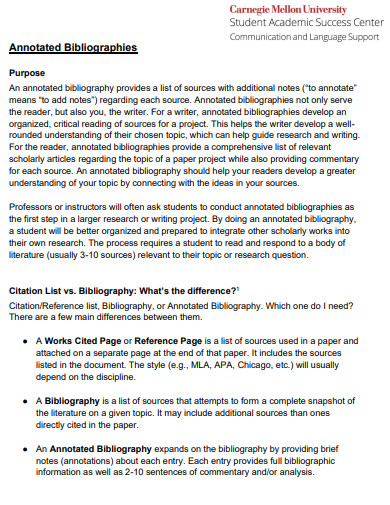
cmu.edu
10. MLA Style Annotated Bibliography
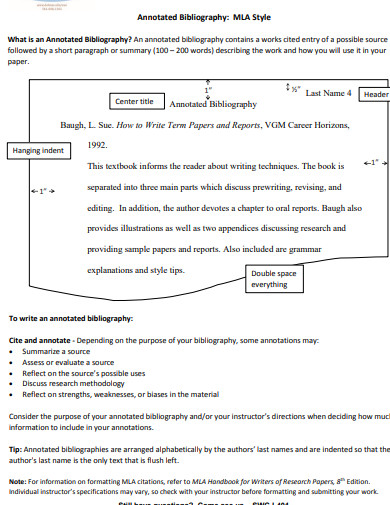
delmar.edu
11. Formatting MLA Annotated Bibliography
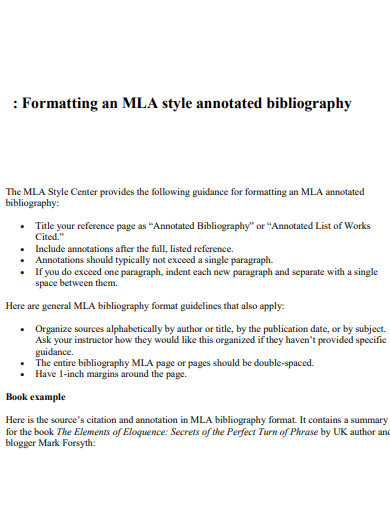
acpsd.net
12. Do And Dont of MLA Annotated Bibliography
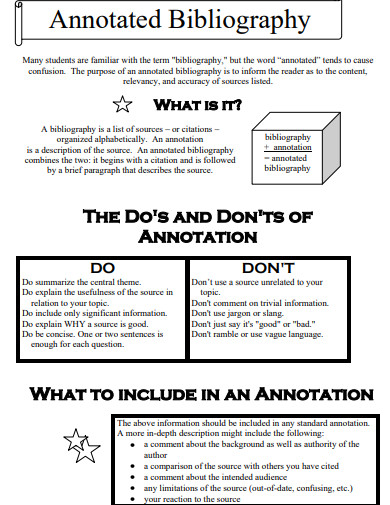
clarion.edu
13. General MLA Annotated Bibliography
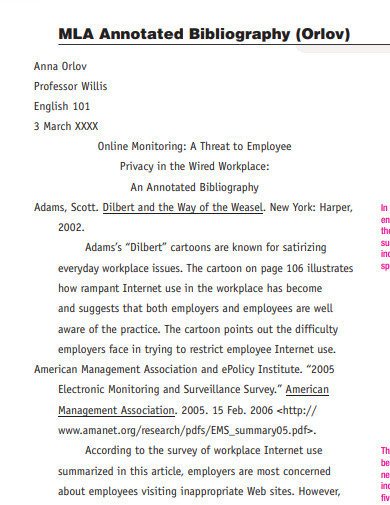
bcs.bedfordstmartins.com
14. University MLA Annotated Bibliography
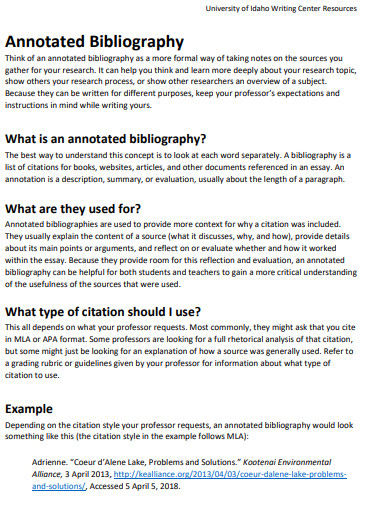
uidaho.edu
15. Author-Based MLA Annotated Bibliography
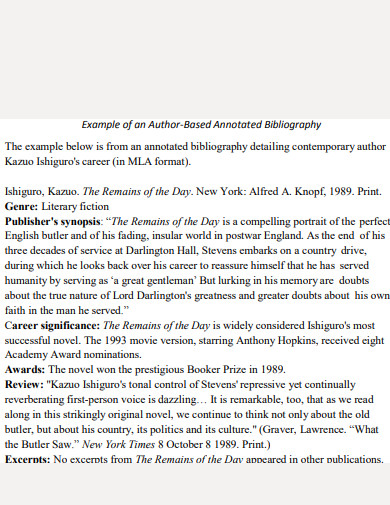
sjsu.edu
16. Journal MLA Annotated Bibliography
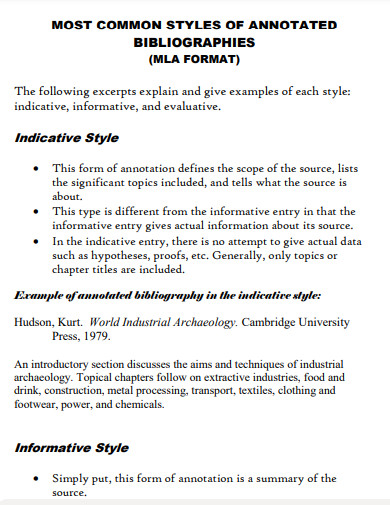
.ius.edu
17. Standard MLA Annotated Bibliography
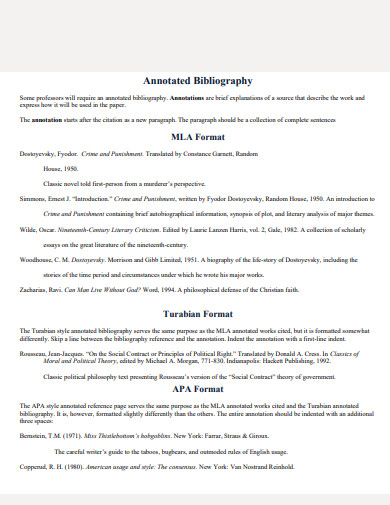
dbu.edu
18. MLA Annotated Bibliography Handout
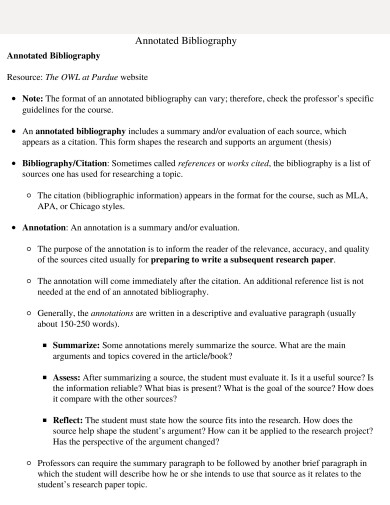
apsu.edu
19. Simple MLA Annotated Bibliography
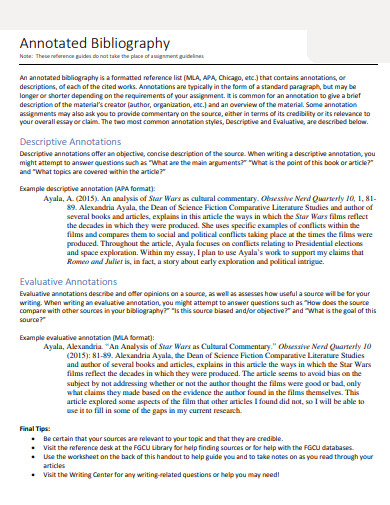
fgcu.edu
20. Elements of MLA Annotated Bibliography
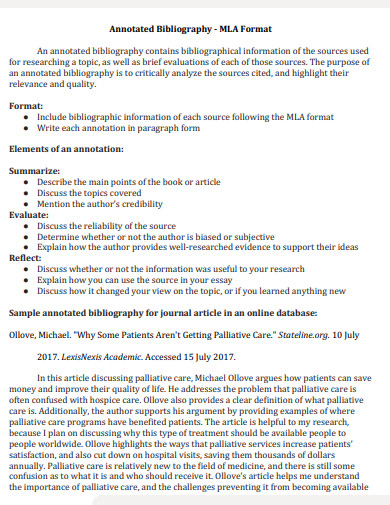
alamo.edu
21. MLA Annotated Bibliography Entry
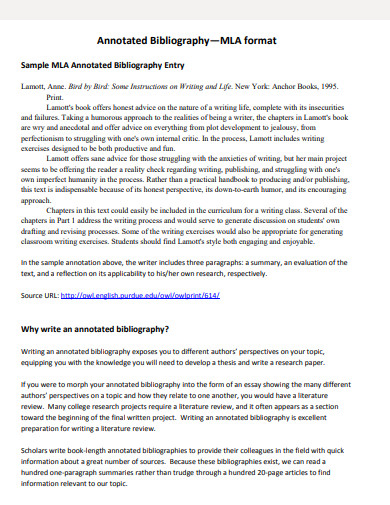
lindsey.edu
22. MLA Annotated Bibliography Document
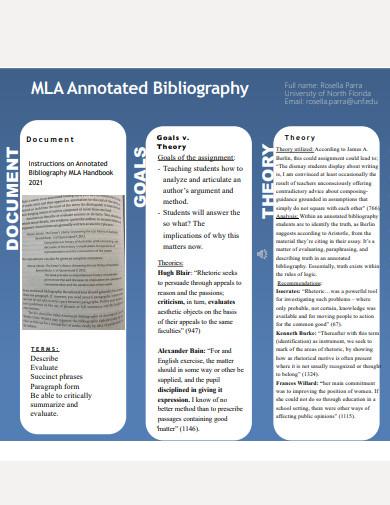
digitalcommons.unf.edu
23. Writing the MLA Annotated Bibliography
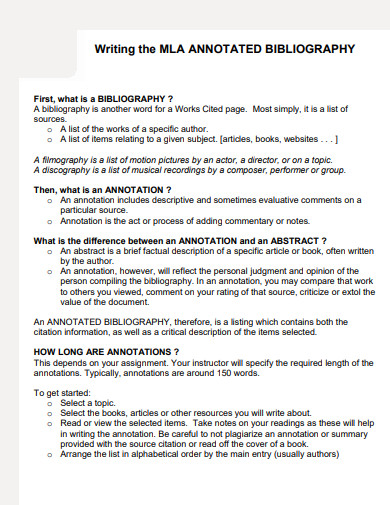
sisd.net
24. MLA Annotated Bibliography Outline
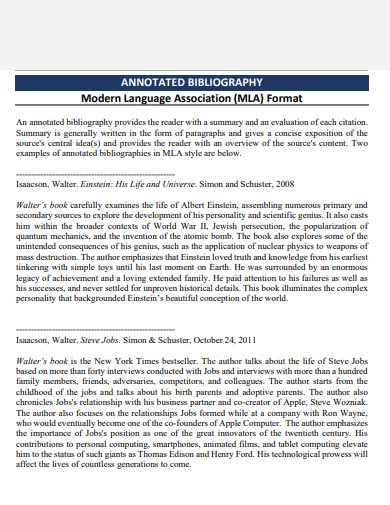
uhd.edu
25. MLA Annotated Bibliography Summary
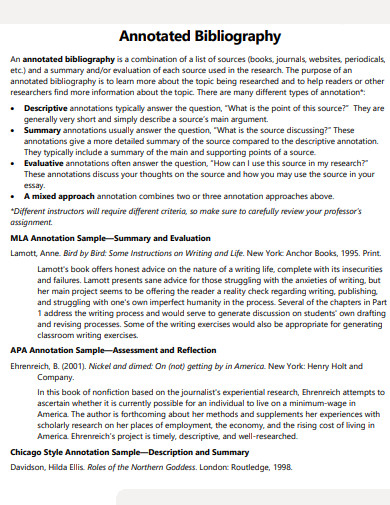
mtsac.edu
What is an MLA Annotated Bibliography?
A MLA annotated bibliography is a comprehensive list of sources relevant to a particular research topic or subject. Each entry in the bibliography includes a bibliographical citation, followed by a concise annotation. The annotation provides a brief summary of the source’s content, evaluates its reliability and relevance to the research, and may also reflect on the source’s strengths and limitations. The annotation serves as a critical and informative component that assists readers in understanding the context and value of the cited sources.
How to Write an MLA Annotated Bibliography
When conducting research, compiling and citing relevant sources is an essential task, and the MLA (Modern Language Association) format provides a structured approach to bibliographical citations. However, when you need to go beyond a simple list of sources and provide additional insights, an annotated bibliography becomes a valuable tool. An MLA annotated bibliography adds a new layer of information by including concise annotations that summarize, evaluate, and contextualize each source. In this section, we will guide you through the process of writing an MLA annotated bibliography step by step, equipping you with the knowledge and skills to create a well-crafted and informative bibliography for your research project. Whether you are a student or a researcher, this guide will assist you in effectively utilizing the MLA format and incorporating annotations that enhance the value and understanding of your cited sources.
Step 1: Begin with a Proper Heading
To write an MLA annotated bibliography, start by creating a separate page titled “Annotated Bibliography” centered at the top. Use the same font and formatting as your main document, typically 12-point Times New Roman.
Step 2: Format Your Citations Correctly
Follow the MLA style format for bibliographical citations, including the author’s name, title of the work, publication information, and medium. Use hanging indents (the first line flush left, subsequent lines indented) for each citation.
Step 3: Write Concise Annotations
After each citation, provide a concise annotation of about 150-200 words. Summarize the source’s main arguments, methodologies, and findings. Evaluate the source’s credibility, authority, and relevance to your research question. Consider the strengths and limitations of the source, and discuss how it contributes to your overall understanding of the topic.
Step 4: Maintain Consistency and Clarity
Ensure your annotations are written in a clear and coherent manner. Use formal language, avoid jargon, and provide specific examples or evidence to support your evaluations. Remember to remain objective and avoid personal biases or opinions.
Step 5: Organize and Proofread
Arrange your annotated bibliography in alphabetical order according to the author’s last name or the title if no author is listed. Double-check your citations for accuracy and formatting, and proofread your annotations for grammar, spelling, and punctuation errors.
FAQs
What is the difference between an annotated bibliography and a literature review?
While an annotated bibliography is a list of cited sources with accompanying annotations, a literature review is a critical analysis and synthesis of existing research on a specific topic. The literature review provides a broader overview and analysis of the scholarly conversation surrounding a subject, whereas an annotated bibliography focuses on individual sources and their relevance to the research.
Can I use the APA format for an annotated bibliography?
Yes, the APA (American Psychological Association) format also allows for annotated bibliographies. However, the structure and formatting guidelines for APA annotated bibliographies differ slightly from MLA style. Make sure to consult the APA 7 manual for specific instructions and examples.
How does an annotated bibliography differ from an APA bibliography?
An APA bibliography is a traditional list of cited sources without annotations, whereas an annotated bibliography includes concise annotations for each entry. The annotations in an APA annotated bibliography often follow a specific format, focusing on the source’s relevance, methodology, and contribution to the research.
In conclusion, mastering the art of creating an MLA annotated bibliography is essential for researchers and scholars alike. The combination of bibliographical citations and informative annotations provides a comprehensive resource for exploring the relevance, quality, and credibility of sources. By following the step-by-step guide and referring to the 24+ examples of MLA annotated bibliographies in PDF format available here, researchers can enhance the quality and depth of their academic work. So, dive into the world of MLA style format and see the power of annotation unfold before your eyes.


